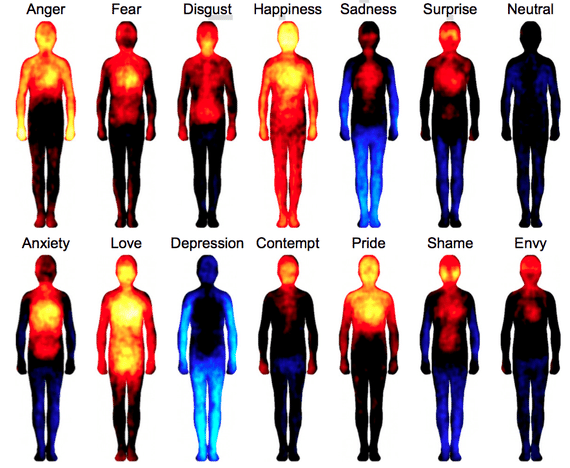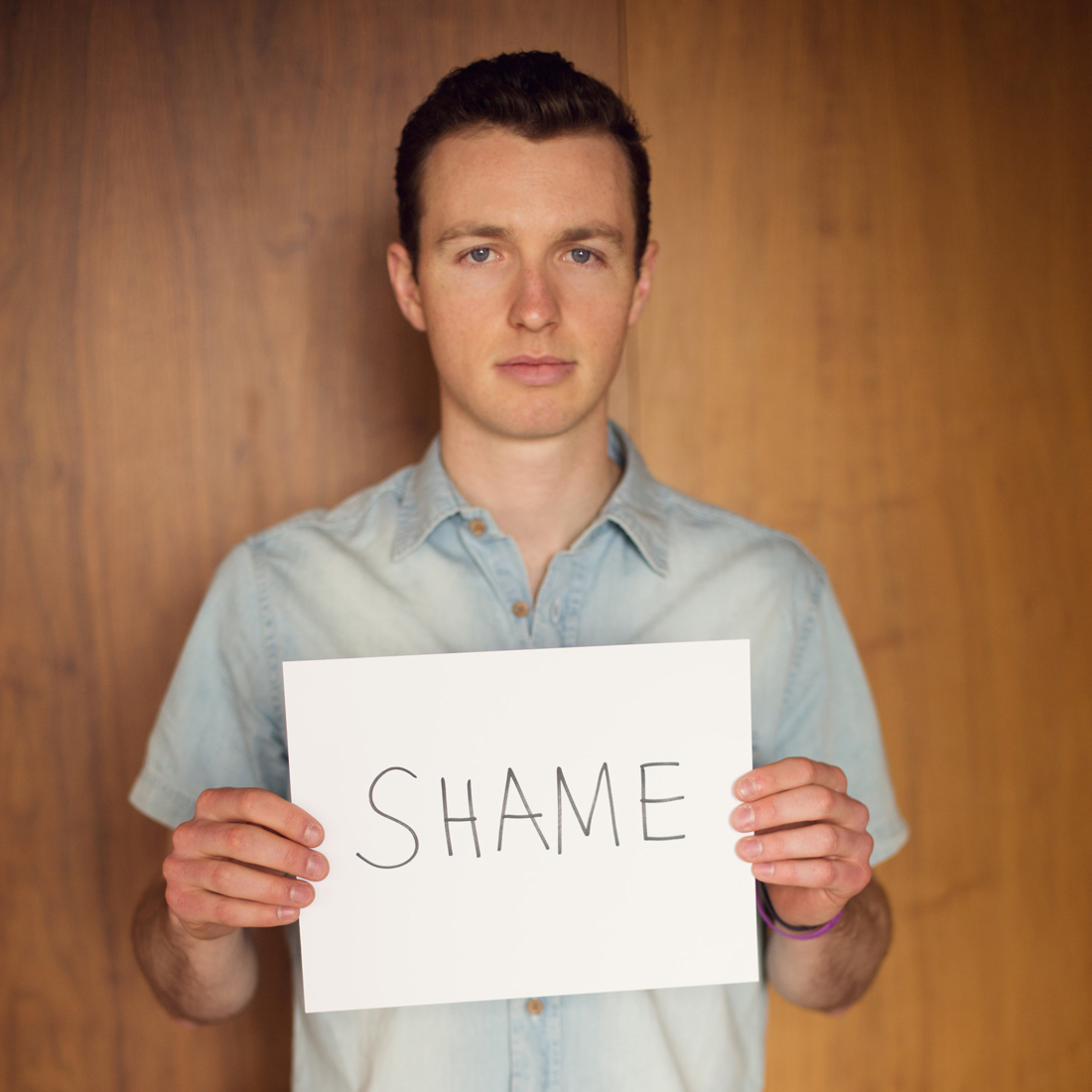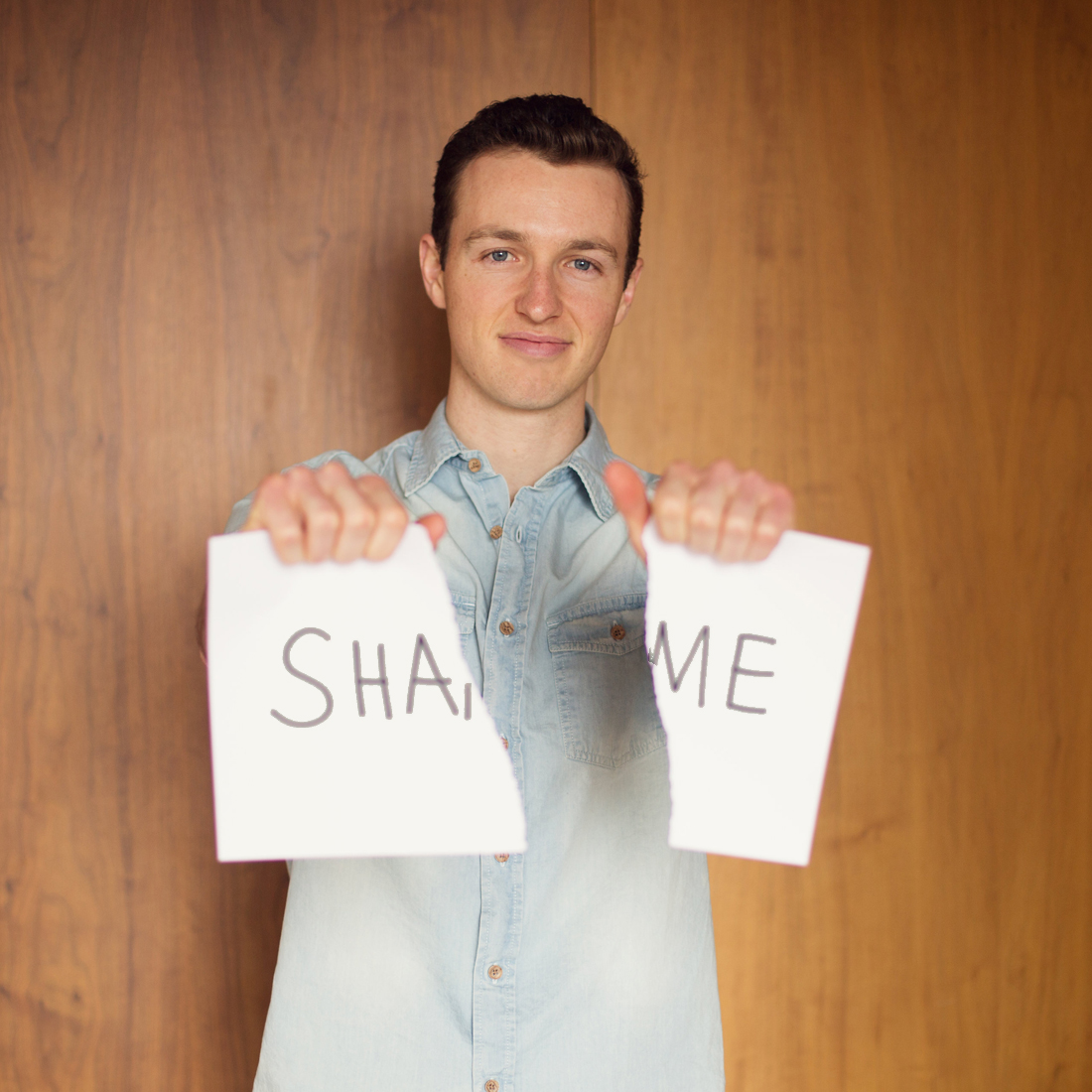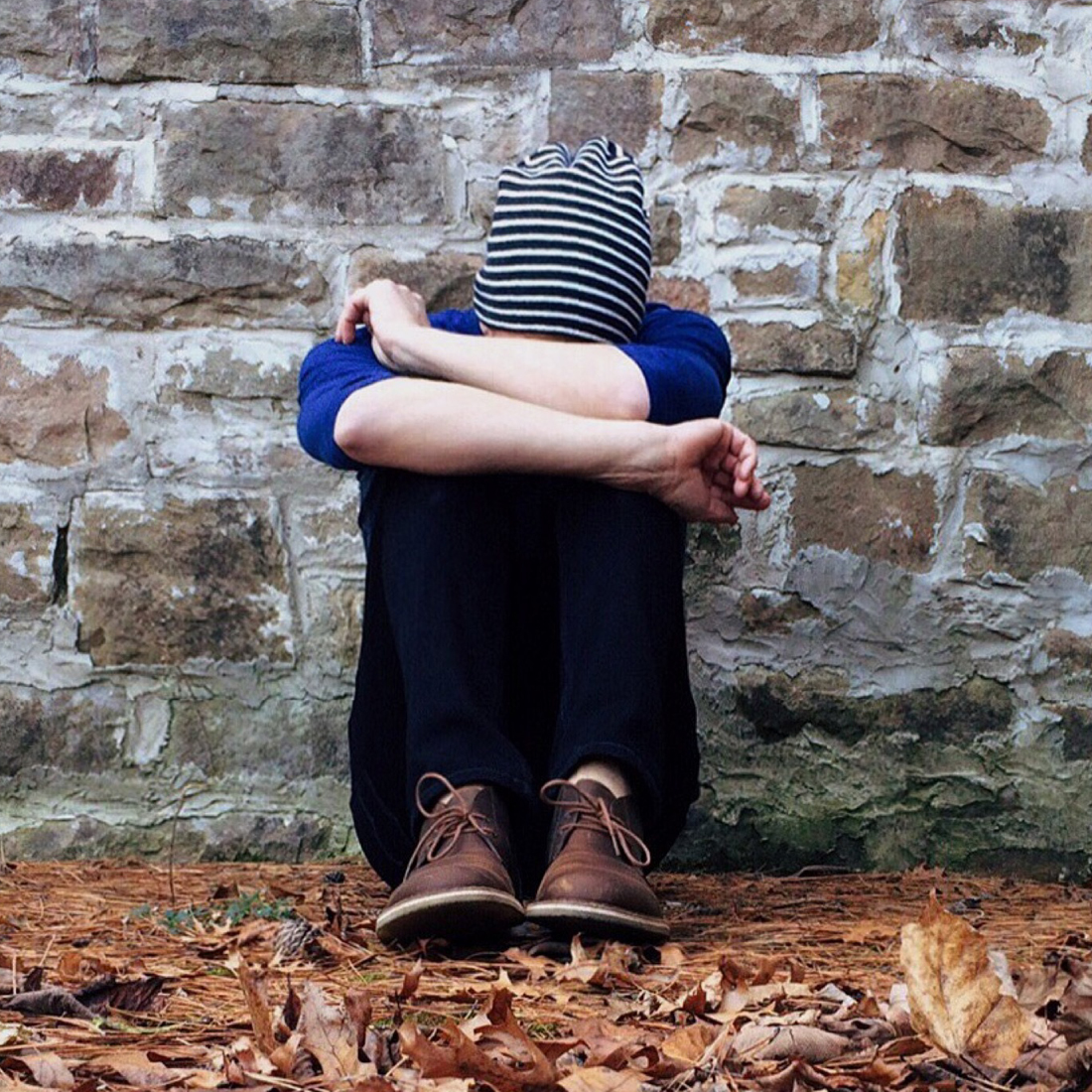Shame. For many young adults, that word is so tied to pornography that they show up together in any conversation on the subject.
We can’t possibly find answers to the problem of pornography without dealing with shame.
David Sack, M.D. says that “Shame is among the most corrosive of human emotions, with the power to convince us that that little voice in our head is right after all – you know, the one that says ‘I knew you’d fail,’ “You’ll never really belong,” and “Who would love you?’”
That’s the kind of inner story that sends us into a shame spiral. That spin has only one direction – downward – and it takes your self-worth, motivation, and mood with it.
The good news is, something else that keeps coming up in conversations about overcoming pornography are Brene Brown’s ideas on vulnerability and shame. She is clearly everyone’s favorite authority on this subject, so we trust her when she says the first thing we need to do to get past shame is to recognize that we are feeling it.
To change anything we have to be aware of it first
We cannot change what we do not acknowledge. So we just need to notice when we are feeling shame, right? After all, it’s such a disturbing feeling that it should always be easy to spot.
Unfortunately, it isn’t always as easy as it should be. We often stuff shame way down deep and are just aware of a sense of sadness, annoyance, or some other miserable feeling.
Why we may not recognize the shame inside
This is how shame gets us: Even confessing to ourselves that we are feeling shame can be shameful. Admitting to feeling shame means facing the scariest possibility – our fear that we did something that made us utterly unacceptable to someone important to us. What if the people we care about think the worst of us and we can’t fix it? The thought can be so painful that sometimes we don’t want to face the fear.
Although shame is a powerful, persistent emotion, it remains, in itself, shameful. Meg Mason
Life coach Alex Kingsmill says shame keeps us stuck because “It’s a very successful emotion when it comes to isolating you, keeping you quiet.”
Shame feeds shame
Shame might start as a temporary response, but if left alone to work its destruction it sometimes becomes such a built-in part of how we think about ourselves that “for many of us, shame is just there, a persistent, private agony. A dull, daily ache that spikes painfully at the merest stimulus.” Meg Mason
It can become the lens through which we view ourselves, as we repeat shame-driven mantras like “I have no self-discipline”, “I am a loser,” “I am a disappointment to people I care about.”
“The less we talk about shame, the more power it has over our lives,” Dr. Brown explains in her book Daring Greatly. “If we cultivate enough awareness about shame to name it and speak to it, we’ve basically cut it off at the knees.”
What shame is not
Embarrassment is not shame
If a situation made you feel embarrassed, don’t let it morph into shame. Embarrassment can pass quickly when we realize that everyone has those moments – it isn’t a comment on our essential worth, just a human experience.
So calling your boss the wrong name, delivering a class presentation while trailing toilet paper stuck to your shoe, or realizing you just had a 2-hour conversation with your date with peanut butter on your chin gets the label “Really embarrassing, but makes for a good story later.”
Guilt is not shame, either
You have probably heard the difference between shame and guilt: Guilt says “I did something bad,” while shame says “I am bad.” Guilt can motivate us to change, while shame drains the energy needed to change.
Travis Spencer, a grad student in Marriage & Family Therapy at Utah State University, shares his view of the contrast between the two: “The fundamental difference between shame and guilt is identity. When someone feels guilt, they feel bad about something they have done that is out of character with their internalized identity as a son or daughter of God or as simply a good person. And in turn, they want to change or make right what they have done to get back in balance with their identity. Someone who feels shame about something they have done attributes it to their identity. They think that they must have done that bad thing because they just are a bad person that does bad things. Therefore, there is no internal motivation to change because they believe that is just who they are.”
We usually have to listen closely to our own thoughts to sort out which are guilt-based and which spring from shame.
Bouncing back from shame
Even though we all have times that shame tries to take us down, we can actually learn to push back and protect our self-worth. The fancy word for this is shame resilience. Just like a memory foam pillow that bounces back into it’s true pillowy form after being squashed, our self-worth and value can resist social pressure and return to the true form of our identity.
The first step to better shame resilience
Interestingly, the first red flag that we are struggling with shame can be physical discomfort.
A study done by Finnish researchers had participants color maps of body regions where they felt their emotions. This mapping exercise revealed that most of us have the same physical sensations in response to emotions. Check out the Spiderman effect that shame produces!

Dr. Brown suggests paying attention to your body for the signs of shame. We asked a group of young adults what shame feels like to them. Do any of these sound familiar to you?
- It feels like a tightness in my heart or chest
- There is some force that pulls your head that makes you want to look down
- Blood draining from my head
- I want to cringe up into a fetal position
- I feel shame in my heart
- I feel it in my face and back of my neck
- It feels hot
- I feel it in my stomach – it feels like it’s turning
- It feels like my skin is being peeled off
- I feel frozen
- I feel defeated
- Going to bed the rest of the day
- I want to be alone and hide
- It feels cold, slimy, vapory
- I feel powerless
- I feel weighted
- Turning inward
- I’m less able to help other people
- I feel like looking down, not making eye contact
- Hiding
Ugh, shame is clearly a downer.
Another interesting way to recognize shame that our young adult team talked about is taste. They said that shame would taste like:
- Something bitter
- Something spicy hot that doesn’t leave your mouth, it burns away in you and you feel like there’s no hope to get out of it
- Horrible aftertaste, like chewing ibuprofen – you think it’s good for you but it ends up having horrible aftereffects
- Shame tastes metallic, like copper
- Like chewing on aluminum – It’s shocking, painful, makes you cringe, you get fixed on it and can’t get rid of the feeling
- Cotton mouth
Be aware of the physical signs of shame
Nonverbal expressions of shame are easy to recognize in other people. One study found that both blind and sighted athletes make the same nonverbal gestures after a win or loss, suggesting that we have biological reasons for these physical responses. Interesting!
Slumped shoulders, lowering our head, looking down, avoiding eye contact, hesitant speech patterns – these are clues that we feel unworthy and want to avoid letting anyone else see into us. In a way, these physical responses are designed to protect us from more painful judgment by cutting off our connection with others.
Most of us even believe that dogs feel shame – I mean, look at those eyes!
When we can recognize those signs and feelings in ourselves, we will be more aware of when we are swimming in shame.
Why shame resilience will help change the culture of silence on pornography
Let’s go back to the reason we are even talking about this – because we want to create a new culture of courage, compassion, and connection to replace the shame, silence and fear that keep people stuck in the problems of pornography.
Guilt, used in a healthy way, leads to progress. When we are doing things that are damaging to ourselves or others in any way, it’s time to recognize it and change it, whether that challenge is pornography or something else.
But shame only stops growth. Shame says “I give up.” We are not giving up on each other!
We can figure this out together. Yes, being more shame resilient will help us be happier and more confident. More able to make healthy changes in our lives. But even more importantly, when we learn to build shame resilience we can help other people do the same. They need us to stand up and say, “This works for me and it might work for you too!” They need to see it in our lives, and then they will be encouraged to push back on shame and regain their self-worth, too.
What you can do now
Take this first step. Start looking for the physical signs of shame so that you can recognize it. Repeat: We cannot change what we do not acknowledge. Self-awareness is one of the most valuable life skills we can have. When you sense it, be brave and call it what it is – I am feeling shame.
Let us know what you learn along the way. We will share more about building shame resilience in this series of posts, so come back and take this journey with us. It’s the beginning of the path to real connection that will change the way we solve the problems of pornography.
Read more about shame and connection
This is blog post #1 in our Shame Resilience series.














4 comments
I have been living in the shadow of shame since I was 7. That’s the time I gave up on life, to just exist, to never pursue happiness ever again. I am ashamed about everything. Myself, my family, my background, my poverty, money and debts, my intelligence, physical features, lack of skills, difficulties in learning, addictions, habits and behaviors, being gay, being single, a degree and profession i am not proud of and don’t practice and use, a job unrelated to my degree and similarly i do not want, most if all my mental illness. I am ashamed of this anger, this sadness, this void i feel all the time. I am ashamed so much. I feel overwhelmed – I’m really such a bad person – there’s too many things to deal with, to change, because i’m too deep into my shame, my anger, my negative emotions, i’ve developed depression and in a place far far far away from home without help and support available. I’m so ashamed to even think. I am writing this under an alias – even my name I’m ashamed of.
You aren’t the only one strugggling with shame, many young people do. You deserve to respect yourself and find joy in your life! It’s never too late to learn to do that and there are resources such as counselors who can help you take those steps. Another good source to learn to change how you’re thinking about yourself is The Life Coach School Podcast by Brooke Castillo. You could start with the first podcasts. Also, check out Lift, an online tool for mental health at joinlift.com. Best to you, we hope you will find your way to greater peace and happiness.
Great article!